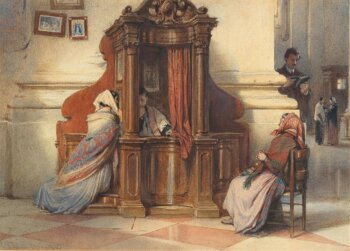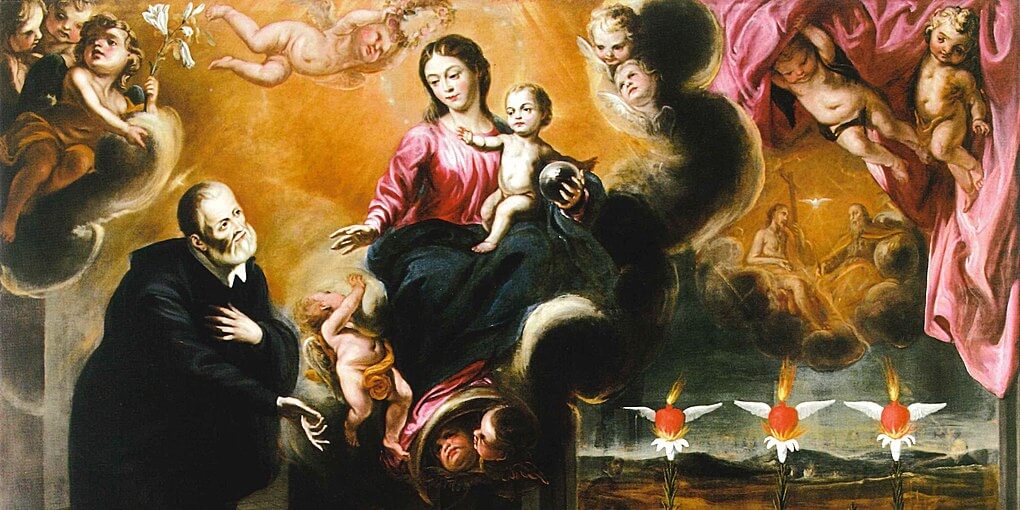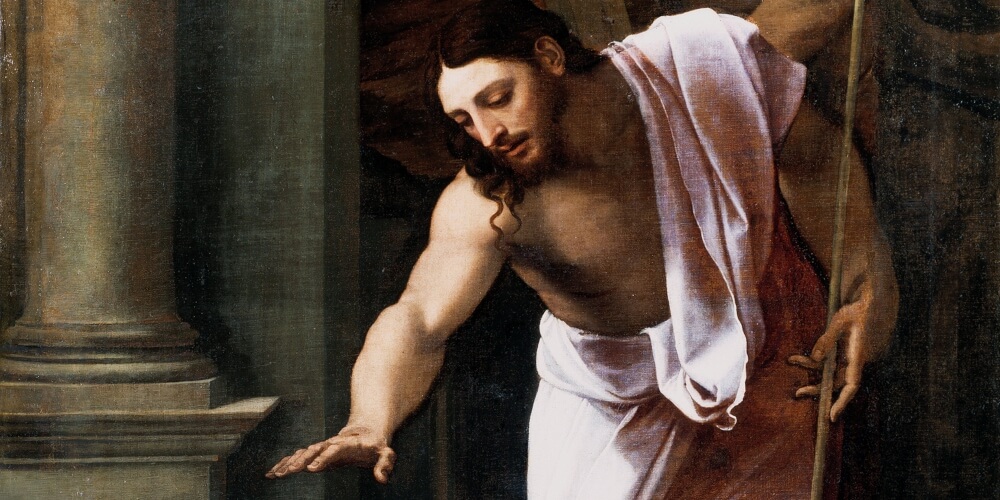
What do you mean when you use the word “providence”?
In common parlance, the word generally means “good fortune.” If something happens “providentially” we mean that it happened at just the right time or that two things coincided fortuitously. It’s serendipity. Good luck.
As Catholics, we put a great deal more meaning behind the phrase.
We know that God cares for us, and that good fortune isn’t mere “fortune” at all. As the Good Book says:
Every good endowment and every perfect gift is from above.
James 1:17
When we talk about God’s Providence, we are referring to His all-encompassing care, particularly when we experience His goodness in ways that we could not have orchestrated ourselves. The world might call that stuff lucky or providential with a small “p,” but those who have experienced the ways of God know better.
But does the conversation end there? Is the entire idea of Providence so quickly summarized?
You’ve probably already guessed the answer.
Come along and we’ll go on an adventure into the world of Providence, a concept which—properly understood—is one of the most humbling aspects of God’s mercy and one of the strongest persuasions of His love.
Multi-Dimensional Providence?

The Catholic understanding of Providence we just discussed is a decent one.
But it’s incomplete.
One-dimensional, you might say. It’s limited to merely caring for our various needs.
Meanwhile, Providence goes much further, both in its purposes and in its methods.
In terms of purposes, God isn’t interested in merely caring for us as though we were abandoned orphans. He doesn’t just want to clean us up and bring us back to a wholesome life. He wants to elevate us. He wants to make us sharers in His divine life. He wants to make us princes and princesses in His household.
In terms of methods, He uses many different methods to achieve His just purposes. It would be useless to give examples because He can literally use any circumstance, event, person, or thing in our lives (and even outside of it) to accomplish His ends.
But there is one thing He uses to bring about His will that deserves a conversation all its own.
It’s the thing that illustrates His Providence more fully than anything else, because it’s the one thing that doesn’t seem like it can be put to any good use at all.
It’s something that seems to have only negative consequences.
That thing is sin.
The Problem With Sin…

The problem with sin is that it shouldn’t happen.
The world would be a better place if we didn’t sin. Each sin (no matter how small) not only harms (or destroys) our friendship with God, it also harms our fellow human beings.
Knowing this, it seems to logically follow that the very best world would be a world without sin.
Each sin degrades the world, and the more sins there are, the worse the world gets. The more we sin, the worse we get. Right?
In a real sense, this is true, and we should strive to avoid all sin. But we sin anyway because we’re sinners.
What then? Does sin interfere with Providence? Do we chip away at its effectiveness through our sinfulness?
To take it a step further, what hope is there for “big” sinners? If we have a past we aren’t proud of and seek God’s mercy, does He merely wash away our sins and do nothing else with them?
By way of analogy: if we’ve suffered a life-threatening injury and go to the hospital to get bandaged up, can we only hope to be merely healthy and mobile again, or can we hope for something more than that?
With a bit of faith, you’ll not only walk again…you’ll run faster than ever before. Because God can do things with spiritual injury—that is, sin—that we can’t.
God can—and does—use even our sins to draw us closer to Himself, to elevate us, to become the saint we were meant to be.
Now a critical point to remember here is that we must convert. Freely sinning under the assumption that Providence will take care of everything is the sin of presumption—and yep, it leads to Hell.
But we’ll talk more about what conversion entails further on.
For now, assuming we do convert, know that God can and will turn all things (even our sins) into a means of grace.
This is something that only God can do.
Only He has power over life and death, whether that death be physical and spiritual. Only He could turn deicide into redemption, only He could lay death aside and rise again—glorious and triumphant—out of a tomb.
Neither sin nor death have power over Him.
Sin Can Benefit Us? Says Who?
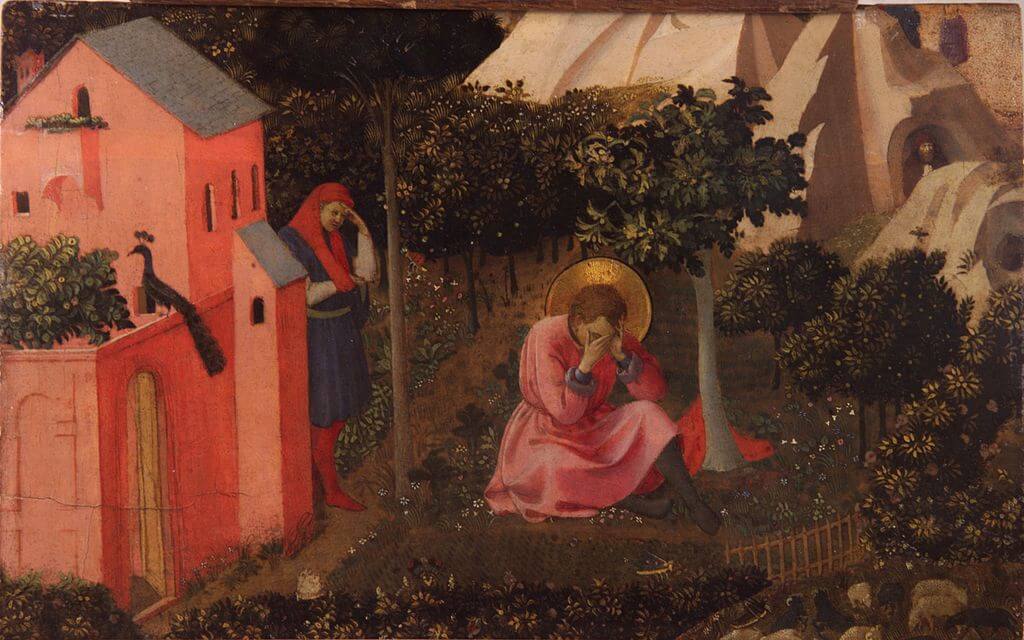
“This sounds pretty wild. God can use sin to benefit us? Says who?”
The Church Fathers, that’s who.
St. Ambrose wrote repeatedly on the idea of redemption being more than just a restitution of our former state—he said that, somehow, Adam (and we his descendants) are in a better state because we have sinned and been redeemed by Christ.
The notion of a “happy fault” is proclaimed in the Easter Exsultet, the Church’s joyful proclamation of redemption which is sung at every Easter Vigil Mass:
O truly necessary sin of Adam,
destroyed completely by the Death of Christ!
O happy fault
that earned so great, so glorious a Redeemer!
And this is not only true on a macro-level in terms of our redemption from the sin of Adam. It is also true in terms of our individual lives, sins, and stories.
Both St. Paul and St. Ambrose’s most famous convert, St. Augustine, are testimonies to the “happy fault” idea as applied to individuals. Their lives were not just proclamations of the Divine Mercy that forgave them the sins of their youth, but also of the Divine Providence that utilized such “wasted” youths as the exact means of their immense sanctity and service to the Church.
To drive home the point, we need only acknowledge that St. Paul’s story is written into Scripture. We hear about his conversion in the Acts of the Apostles, and he references his past in various places, such as in 1 Corinthians 15:9:
“For I am the least of the apostles, unfit to be called an apostle, because I persecuted the church of God.”
1 Corinthians 15:9
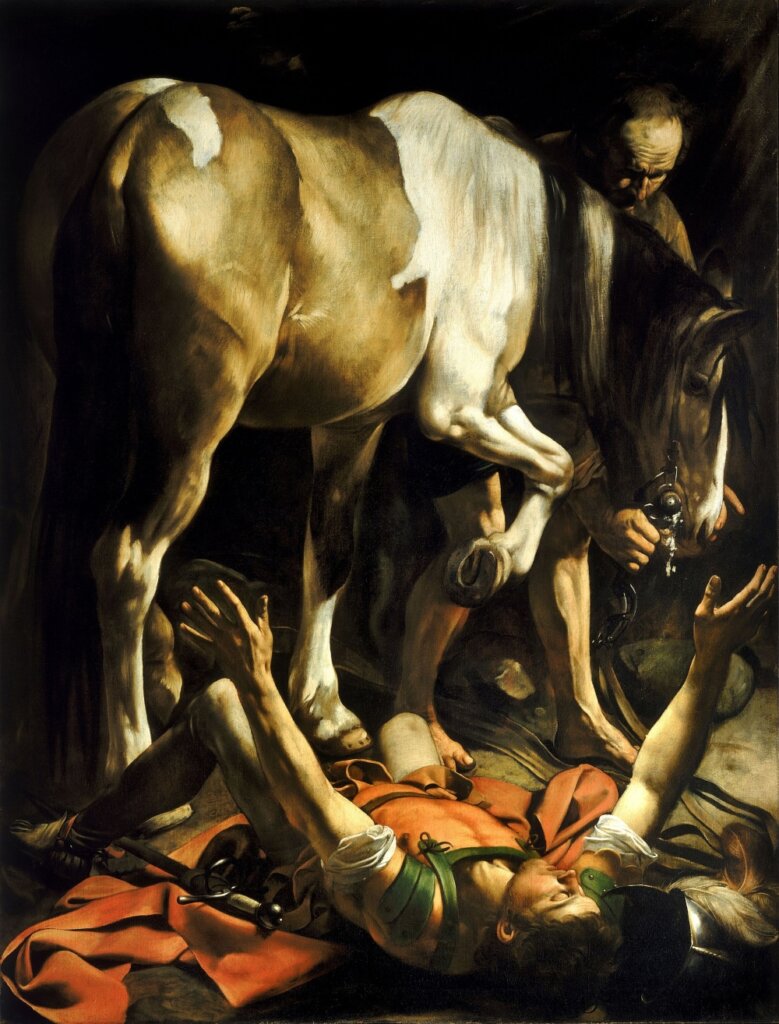
As for St. Augustine, he just wouldn’t be St. Augustine without his backstory. His name is synonymous with conversion. His Confessions are arguably his most famous work. And out of such a sinner, God created such a saint.
You might say that the sins of these saints are an integral part of their story. It’s like the story couldn’t have happened without these sins. It’s like it’s almost, sort of, good that they happened.
Now, we’ve already said this, but it’s worth repeating: every sin is an evil and we should strive to avoid it.
For St. Paul and St. Augustine, conversion was the critical element that turned their sorry sagas into miracles of Providence.
Warning: Conversion is Necessary
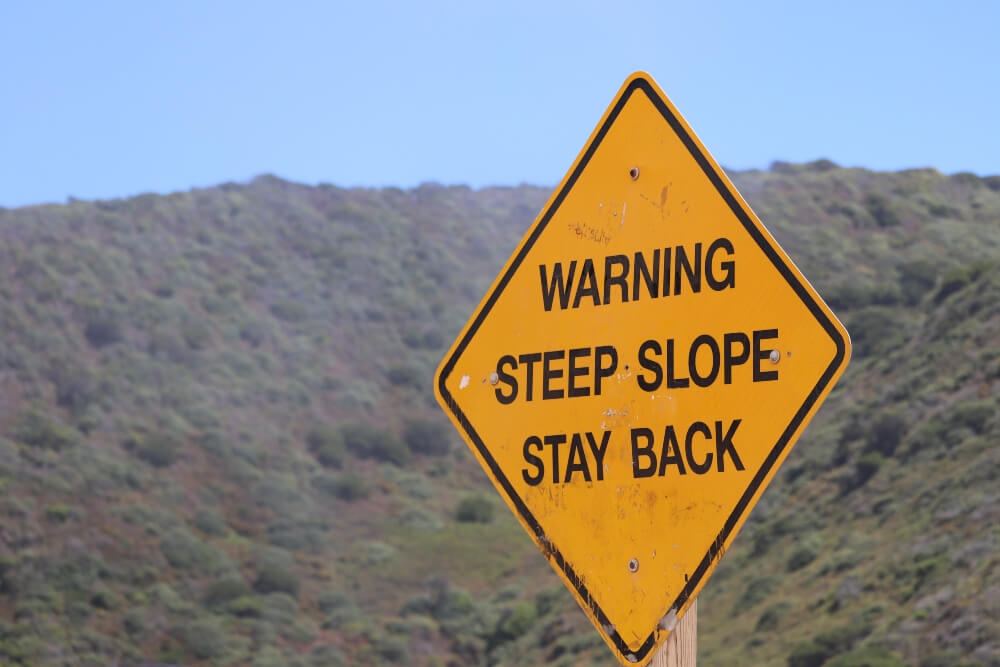
For us, too, conversion is necessary to experiencing God’s Mercy and unleashing the power of His Providence.
But what does that word—conversion—mean? What does it obligate and entail?
Conversion isn’t just that isolated moment when you get knocked off your horse on the way to Damascus. That was certainly a big part of St. Paul’s conversion, but it was really only the beginning.
Conversion means turning away from sin (which may or may not include a road-to-Damascus moment), repenting, going to Confession, consistently striving to avoid sin through a firm purpose of amendment, and pursuing a life of holiness.
It means re-adjusting and re-converting when we get off track. It means repenting over and over again, as often as we sin. It’s a serious and persistent rejection of evil and pursuit of the good.
We are always free to refuse to convert and to go merrily on our way to Hell and God won’t force the issue because He respects our free will.
We can also (as stated above) commit the grave sin of presumption by freely sinning and assuming He’ll take care of everything.
A more subtle form of presumption can also creep in if we don’t take sin seriously. Maybe we don’t sin “freely,” but maybe we don’t resist it like we should, dependent on a malformed notion of God’s mercy.
Think of it this way: if a friend continually did something to hurt you, and then excused himself each time by appealing to your mercy and the idea that “all things work towards the good,” would that relationship last?
Nope. That’s an abusive friendship—no friendship at all. Furthermore, this friend’s request for forgiveness is not sincere. If it were, he would do his best not to harm you again.
We must take sin seriously. We must take holiness seriously. God wants to turn our sins into springs of grace, but it can only happen if we cooperate—if we convert.
If we do convert, there is nothing He won’t do for us. He will—in the infinite workings of His Providence—turn our sins to our benefit.
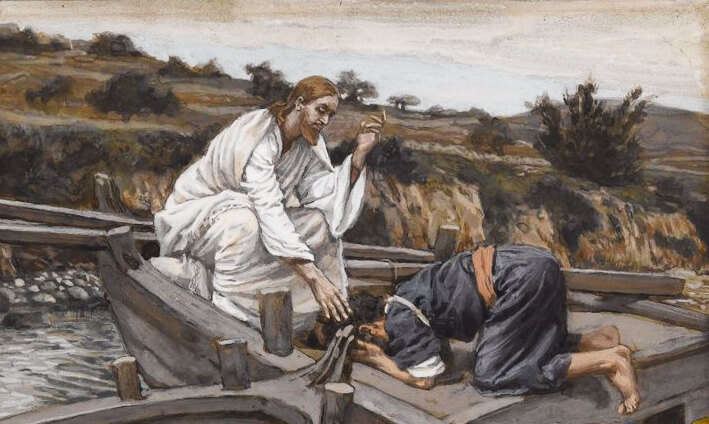
A few examples of the things God can do (though this list is hardly exhaustive since His methods and gifts are innumerable):
- Through our failings He can teach us humility, self-knowledge, a true appreciation of our dependence on Him, and a host of other virtues.
- He can use us to illustrate His mercy to others, who will then take hope from our story.
- We can gain wisdom, which we can then share with others who are struggling with the same sins and burdens that we have.
- God can employ our “wrong turns” to lead us to good people that we needed in our lives—or who needed us.
There is no telling what masterpiece God will create with the raw material of our poor choices.
Dom Eugene Boylan, a holy Trappist monk who died in 1964, taught that God sometimes permits His children to sin in order to rescue them from their own pride. Because pride is the greatest danger to our souls.
Ultimately, we can be assured of this: if we convert and entrust ourselves (and even our sins) to God’s Providence, our lives and souls are going to be better than before we sinned.
“Better than before? It doesn’t make sense!”
That’s okay. Providence is a mystery, which means it’s beyond human comprehension and logical explanations. As God says in the book of Isaiah:
“For my thoughts are not your thoughts, neither are your ways my ways, says the Lord. For as the heavens are higher than the earth, so are my ways higher than your ways and my thoughts than your thoughts.”
Isaiah 55:8-9
Sit back and enjoy the mystery, because you’re never going to work it out.
But What About Me?

Well, this is all very nice, you might say, but none of us are St. Pauls or Augustines. Does God really care as much about our stories, our little stories that maybe will never be written in any history book? Does He really go to such lengths for us?
Of course He does, because doing anything less would make Him less than God. He cares even for the sparrows that fall to the ground, and knows every blade of grass that grows and dies.
“Fear not, therefore,” says Jesus in the Gospel of Matthew, “you are of more value than many sparrows.”
This is well worth remembering when we get into the maze of regret, frustration, and discouragement that often tempts us even after we’ve repented of our sins and corrected our errors.
It’s worth remembering this when we look back on our lives and recognize not just our sins, but the things we could have just done better—those times when we acted imprudently, made far-reaching and ill-informed decisions, when ambition guided us, when impatience thwarted our progress, when we gave up, when we harmed ourselves or others in ways that seem permanent.
It takes a bit of faith not to get bogged down in those negative thoughts. They are, after all, the logical results if we do the arithmetic of our lives. And the devil will always use this arithmetic to tempt us to doubt, discouragement, and eventually, despair.
But nothing, nothing is outside of God’s workings, no matter what you or the devil say. There is nothing that you, me, or any of our friends or enemies can do to outwit God, to confound His work, to alienate Him in any permanent way (while we’re alive, anyway), or offer Him a challenge He won’t willingly accept.
There is nothing you have done that He can’t turn into grace. As we say in South Carolina, Dum spiro spero. While I breathe, I hope. If you’re breathing and striving for holiness, God’s Providence is at work in you.
You’re boxed into a corner now. You can’t escape. You’re caught in God’s magnificent web of Providence.
So why not embrace your predicament and allow yourself to be loved? Loved in a totally divine, superterrestrial, illogical manner that defies all human arithmetic?
For I know the plans I have for you, says the Lord, plans for welfare and not for evil, to give you a future and a hope.
Jeremiah 29:11
That verse from the book of Jeremiah was not just meant for the people of Israel. It is meant for every person who lays eyes on it.
You’ve sinned, so have I.
You’ve made bad decisions, so have I.
We’ll make more tomorrow and next week and next year.
But be of good cheer.
A glorious future awaits us.

